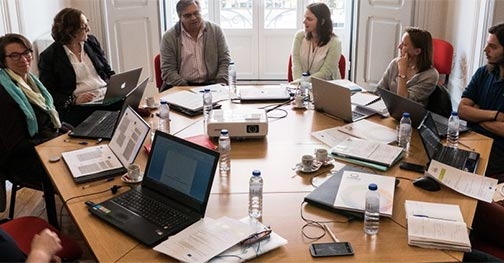InnoVal aims at identifying innovative and reliable assessment methods that can allow all learners to have a chance at validation, with a special focus on the needs of disadvantaged groups such as refugees and early school leavers.
According to the CEDEFOP 2014 Validation Inventory Report, EU countries still greatly diverge in terms of mechanisms in place. In order to ensure the validity and reliability of assessment procedures, and to avoid additional costs, many educational institutions prefer to use standardised tests. The use of alternative methods such as portfolios, declarative methods and simulations, is on the increase but remains limited. The partners believe that the use of standardised tests hinders learners’ take up in validation and represents one of the strongest obstacles to their development in Europe.
Indeed, validation systems are often targeting adults who have had a bad experience with formal education and formal assessment methods. This has led them to not completing their secondary education and to not participating in any further formal education. Yet, they have acquired many skills and competences in non-formal and informal learning environments that they would be willing to have validated if the assessment method did not bring them back to their bad past experience with formal education. InnoVal aims to foster a change in practices related to the assessment of non-formal and informal learning across Europe and across sectors. This is particularly urgent when we consider the need to up skill the adult population (PIAAC results) and to deal with the current refugee crisis.
For the certificates and qualifications issued by validation systems to be credible, assessment methods must be trustworthy. InnoVal intends to gather experience on innovative assessment methods from across Europe in order to determine which ones have proven to be successful. To help foster trust in these innovative methods, InnoVal intends to illustrate successful innovative assessment methods with best practices. By using new technologies the project provides a solution to many practitioners who have to implement validation mechanisms without always being prepared to do so. It will propose very concrete modules on how to deal with non-traditional publics, to implement alternative assessment methods, to ensure quality, to work with external experts and to be cost efficient. The project will therefore address the need for capacity building of assessors to ensure reliability of results and to overcome initial resistance.
InnoVal (Innovative Assessment Methods) brings together VET and HE providers who are advanced either in the use of innovative assessment methods, in building links with the labour market and/or in dealing with disadvantaged groups; research bodies who can provide the evidence with a EU perspective and European networks which can ensure policy impact and broad dissemination and exploitation of results. InnoVal covers 6 countries (BE-FL, FR, FI, EL, PT, DE) and well beyond. The potential transferability of the case studies and of the innovative methods will be included in all of the project’s outputs. The partners will engage various target groups from the start of the project (Ministries in charge of Validation, EU, NQF Agencies, EU networks, etc.) in order to ensure a broad impact.
InnoVal will therefore contribute to build a shared understanding of quality principles of assessment and will explore the benefits of non-traditional assessment methods for validation for low skilled adults as well as for migrants/refugees and will contribute to Europe’s most pressing challenges.
The main project objectives are:
- Developing a needs assessment review of Assessment Methods for Validation that complements the CEDEFOP Guidelines & Inventory, aimed at practitioners
- Developing a deeper understanding of the barriers & enablers to implementing alternative assessments, based on findings of an online consultation which will seek the views of a range of stakeholders
- Coming to a share understanding of quality principles of assessment such as validity, reliability, transparency, trustworthiness, dependability, confirmability, transferability & (cost) efficiency for alternative assessments
- Exploring of the benefits of non-traditional assessment methods for validation for low skilled adults, migrants/refugees
- Ensure inter-reliability between VET & HE for performance-based assessments, as this ensures that employers & different educational institutions accept the results
- Develop & test an Open Educational Material & Toolbox of case studies using the potential of new technologies
The Erasmus+ KA2 project InnoVal is coordinated by the LLLPlatform. The partnership is composed of 6 partner organisations from various fields of expertise and from 5 different EU countries: LLLPlatform (Belgium), Dafni Kek (Greece), EIESP (France), ANESPO (Portugal), EUCEN (Belgium), UC Leuven (Belgium), Associated partner: Bertelsmann Stiftung (Germany).
Source: InnoVal Website
